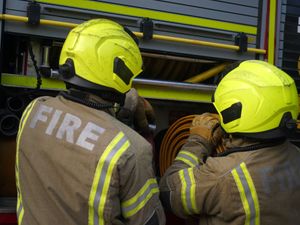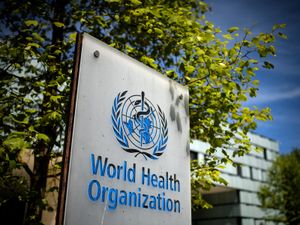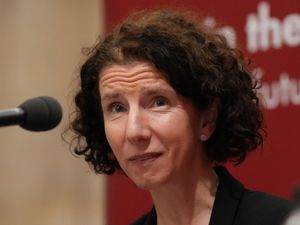Dame Sarah Gilbert: Next pandemic could be more lethal than Covid
The scientist, one of the creators of the Oxford/AstraZeneca vaccine, warned that another pandemic could be more contagious and deadly than Covid.
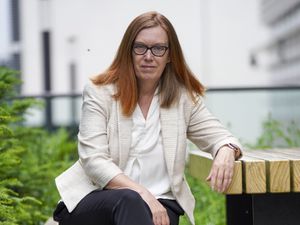
Another pandemic will threaten human lives and could be “more contagious” and “more lethal”, one of the Oxford/AstraZeneca Covid vaccine inventors has warned.
Professor Dame Sarah Gilbert, delivering the 44th prestigious Richard Dimbleby Lecture, said the scientific advances made in research against fighting deadly viruses “must not be lost”.
Dame Sarah said: “This will not be the last time a virus threatens our lives and our livelihoods. The truth is, the next one could be worse. It could be more contagious, or more lethal, or both.”
She went on to say: “We cannot allow a situation where we have gone through all we have gone through, and then find that the enormous economic losses we have sustained mean that there is still no funding for pandemic preparedness.
“The advances we have made, and the knowledge we have gained, must not be lost.”
The Oxford professor is credited with saving millions of lives through her role in designing the coronavirus vaccine.
She has been making and testing vaccines for more than 10 years, mainly using antigens from malaria and influenza, and initiated the SARS-CoV-2 vaccine project in early 2020 when Covid first emerged in China.
The vaccine developed by her team is used in more than 170 countries around the world.
The vaccinologist received a damehood earlier this year for services to science and public health in Covid vaccine development.
Speaking about the Omicron variant, Dame Sarah added: “The spike protein of this variant contains mutations already known to increase transmissibility of the virus.
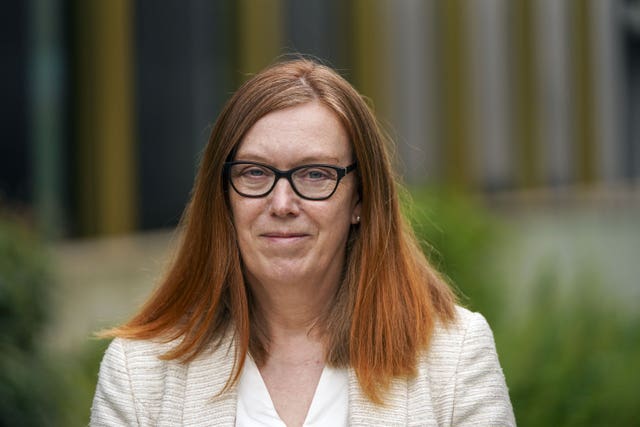
“But there are additional changes that may mean antibodies induced by the vaccines, or by infection with other variants, may be less effective at preventing infection with Omicron.
“Until we know more, we should be cautious, and take steps to slow down the spread of this new variant.
“But as we have seen before, reduced protection against infection and mild disease does not necessarily mean reduced protection against severe disease and death.”
On Sunday, the UK Health Security Agency said a further 86 cases of Omicron had been confirmed in the UK, 68 in England and 18 in Scotland, bringing the total to 246.
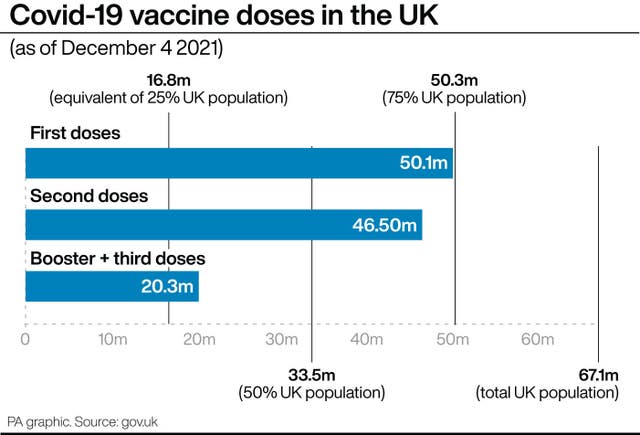
Dame Sarah’s warning came as it was reported that nearly two-in-three housebound people – including many at greatest risk from the virus – are yet to receive their booster jabs.
The Daily Telegraph reported that an unpublished Whitehall analysis seen by the paper found that only 170,000 housebound people had received their dose of the vaccine by the end of last week out an estimated cohort of 470,000.
In contrast, more than 60% of the over 50s have received their booster.
It comes amid warnings that GPs who delivered the first and second jabs to the housebound are now dropping out as they do not have the time or staff.
In response, a NHS spokesman said: “Local NHS and GP teams are contacting their eligible housebound patients, and we are working closely with St John Ambulance to give local areas additional support.
“We are also providing additional funding to help local teams secure additional staff so that all eligible housebound patients are offered a booster as quickly and safely as possible.”
The Richard Dimbleby lecture, named in honour of the late broadcaster, features influential speakers from academia, arts and business and the royal family.
It will be broadcast on BBC One and iPlayer on Monday at 10:35PM.

